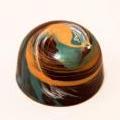-
Welcome to the eG Forums, a service of the eGullet Society for Culinary Arts & Letters. The Society is a 501(c)3 not-for-profit organization dedicated to the advancement of the culinary arts. These advertising-free forums are provided free of charge through donations from Society members. Anyone may read the forums, but to post you must create a free account.
It's the latest thing!
-
Similar Content
-
- 112 replies
- 13,639 views
-
- 268 replies
- 25,273 views
-
- 67 replies
- 6,347 views
-
- 4 replies
- 539 views
-
- 40 replies
- 4,750 views
-
-
Recently Browsing 0 members
- No registered users viewing this page.







Recommended Posts